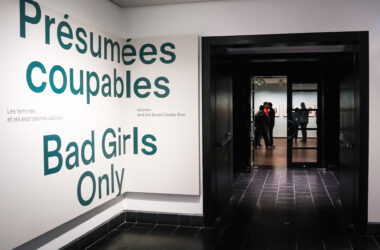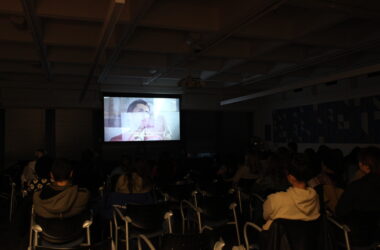Though stuffed into only 150 pages, Julian Barnes’ new novel, The Sense of an Ending, is a very big book. This thin volume trades in themes one might only expect to find in a real doorstopper of a book, a fat Bildungsroman, a sweeping history of a life. Barnes’ book is none of these.
If you are looking for scenes well set, characters comprehensively drawn, or the general ambience of 1960s Britain artfully construed, this is not that book. Barnes—through his self-admittedly untrustworthy narrator, Tony Webster—has a very specific story to tell, and is loath to write about much else.
And yet the book’s sweep is indeed magnificent: death, sex, friendship, youth, maturity, history, literature, family, memory, the past, love, regret, illusion, time, philosophy, suicide, intellect, music, conformity—these massive topics, and many more, all come in for the basic Barnes treatment: close inspection, direct interrogation, complete re-working.
As the book opens, Tony Webster is in grammar school. His clique has recently expanded from three to four with the addition of Adrian Finn, “a tall, shy boy who initially kept his eyes down and his mind to himself.” Tony is captivated by Adrian’s emotional and intellectual maturity (“He gave the impression that he believed in things”) in contrast to his own pubescent insecurities. While Tony and his friends assume a rebellious posture against the world they still know nothing about, Adrian is eager to engage. “The three of us considered school sports a crypto-fascist plan for repressing our sex-drive,” Tony reports. “Adrian joined the fencing club and did the high jump.”
Tony further admires Adrian’s intellectual honesty, his application of thought to life. Adrian would work a problem out in his head, announce that something was “philosophically self-evident,” and actually implement his conclusions through concrete action, while his less mature friends only affect seriousness.
But when Adrian steals his girlfriend, Tony is less than amused. He scrawls out an angry letter to his ex-friend and ex-girlfriend, expressing hopes that “you get so involved that the mutual damage will be permanent” and that “acid rain [will] fall on your joint and anointed heads.” The damage is indeed permanent: within a few months, Adrian has cut his wrists and bled to death in the bathtub, leaving behind a complex philosophical argument defending a person’s right to refuse the unwanted gift of life.
All this has happened by page 47. The rest of the book has Tony married, divorced, and, in lonely old age, obsessing over these episodes from his past. On the surface, he is attempting to reconstruct the story of what really happened, something he only accomplishes on the last page of the book, arguably not at all. More importantly, he is attempting to construct stories of the pasts of the people he once knew, stories that agree with the story he has told himself of his own life.
He digs through old letters and pictures and faulty memories, interviews his ex-wife and, repeatedly, the ex-girlfriend Adrian stole, trying to craft a more comfortable narrative of the past. Given the overwhelming evidence of his culpability, however, Tony finds the task too difficult. He may have lived longer than Adrian, but in a way he lived less, too.
Meditations on the ambiguities of memory, the non-linearity of time, laments for lost youth are common. What is unique about The Sense of an Ending is Barnes’ treatment of these themes, and the accessible, clear, almost epigrammatic way he has of writing them into his narrative. Those meditations do not sacrifice clarity for complexity.
Throughout the book, Tony seems to waver between considering maturity a welcome improvement of life, an achievement, and moments when he laments his lost youth, and more, regrets the years since that have robbed him of his ideals and replaced them with pitiable excesses of complacency, stubbornness, and undeserved self-satisfaction: “We thought we were being mature when we were only being safe. We imagined we were being responsible but were only being cowardly. What we called realism turned out to be a way of avoiding things rather than facing them.” Coming from a 65-year old British novelist (and an admitted Francophile) that will have to suffice as a contemporary substitution for “Aux barricades!”
If Tony’s meditations waver back and forth and conclude on a note hardly more convincing or final than previous, contrary assertions, Barnes has at least drawn a moving picture of the doubts and lamentations that precede death. They are essentially the unwanted rewards of ordinary life.
Tony’s belatedly acquired wisdoms fill most of the final third of the book. He apparently needed to live a full life before discovering them: “When you are young, you think you can predict the likely pains and bleaknesses that age might bring…But all this is looking ahead. What you fail to do is look ahead, and then imagine yourself looking back from that future point. Learning the new emotions that time brings.”
We can’t learn these emotions by reading about them. But The Sense of an Ending rewards the reader with a peek, however brief, at what we can look forward to looking back at. It’s not pretty.







